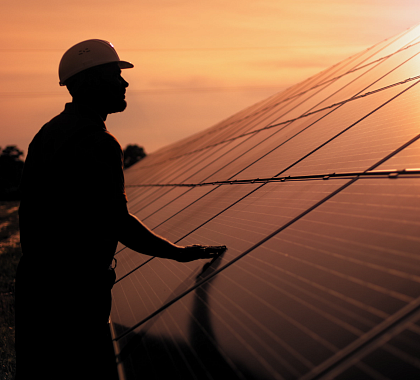"We live in a global competitive environment, so when it comes to energy strategies, all countries can be divided into three groups. The first group includes nations aspiring to achieve global supremacy. These are the USA and, to some extent, the European Union. They got used to setting the rules. This is one of the objectives of the new energy strategy: to change the status quo by introducing the principles of partnership. That is when the concept of ‘fairness’ comes into play, which means that countries should be able to determine the terms of doing business"
Yakov Sergienko, CEO of Yakov and Partners
"We live in a global competitive environment, so when it comes to energy strategies, all countries can be divided into three groups. The first group includes nations aspiring to achieve global supremacy. These are the USA and, to some extent, the European Union. They got used to setting the rules. This is one of the objectives of the new energy strategy: to change the status quo by introducing the principles of partnership. That is when the concept of ‘fairness’ comes into play, which means that countries should be able to determine the terms of doing business"
The global energy landscape has changed drastically over the past few years, resulting in Russia’s lower export potential to countries that previously were major markets, and on the other hand, opening up new markets and growth paths.
As Russia is being driven out of the global gas market, the USA has been able to establish itself as a leader in exports, while Europe has focused on green energy and the trend towards deep deindustrialization.
"We have to shed the illusion that we’re going to work with them a lot in the future. This means that we need to decide on the geography of our infrastructure and production facilities"
If we talk about China, today it’s the only country where green technologies are cost-effective. Besides, Chinese coal production meets more than 90% of the domestic demand, and its coal import is expected to decrease in the future.
"This is the most pragmatic energy strategy that bets on the green transition. We, too, need to follow this trend as closely as possible. This also means that China will not be a market for us in the long term"
In this context, Russia will need to revise its approach to developing the energy sector in order to ensure technology leadership.
"The old methods will not be enough. It’s not for nothing that the presidential decree mentions ‘technology leadership’ rather than sovereignty. If we look at how other countries compete with Russia – for instance, the USA – they have been quite tough on us: we have lost our key consumers, there’s pressure on transportation. We need to find ways to win through technology leadership"
Yakov Sergienko noted in his speech that we have partner countries that offer valuable lessons to learn from. The example of Saudi Arabia shows that Russia should tap into all market trends, regardless of which country initiates them. Saudi Arabia launched the Circular Carbon Economy strategy enabling the country both to follow (and to capitalize on) the global "greening" trend and to support its economic development based on hydrocarbons.
"In this case, Saudi Arabia serves as a good example for us"
"Shifts in the global energy consumption make it clear that we need to change our priorities"
"We need to prioritize the Asia Pacific region as a new key market for us. This region includes India, which has been the fastest-growing country in recent years and a good partner to Russia. We need to gain a foothold in these markets, just as we did in Europe"
In the past 23 years, India's energy consumption has been growing 1.9 times faster than the global average. India is already a major market for Russian coal (its share of Russian coal exports reaches 25%), but competition for this market is bound to intensify, as producers will shift their focus away from the declining Chinese market.
Thus, building strong partnerships in the Asia Pacific region is key to ensuring the stability of Russia's energy strategy.
"We must establish a leading position on the cost curve and leverage all technology available to us to ensure that, in terms of cost per unit of energy, we remain competitive both in the domestic and global markets. We should also leverage our role as a country that has been shaping a more realistic global order to promote fairness in global energy consumption," concluded Yakov Sergienko, Head of Yakov and Partners"
Sergey Tsivilev, Russia’s Minister of Energy, agreed that we need to focus on the long-term horizon.
"It is not strategy alone that Yakov and I are working on. We have also agreed that we need to create an ecosystem around our energy sector. This ecosystem will involve not only industry giants but also medium and small businesses, as well as startups, which we will enable to promote their initiatives"
Sergey Tsivilev, Russia’s Minister of Energy



